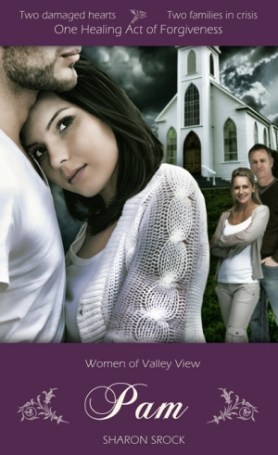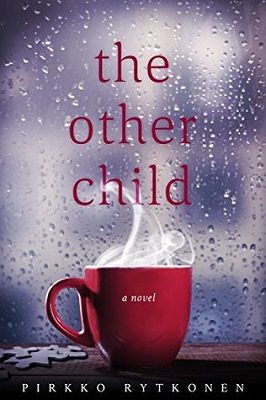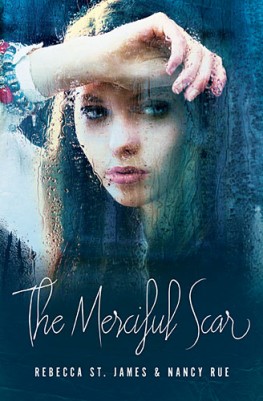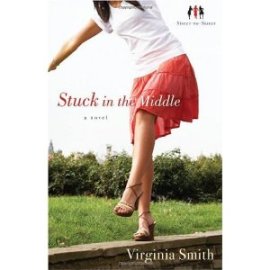Pam Lake is the heroine in the newest novel in The Women of Valley View series by Sharon Srock. Pam’s story releases this month.
Janet: Pam, thanks for visiting us today. It sounds like you have a great group of friends in Valley View. You’ve given your support to Callie and Terri in their stories, but how does it feel to be in the spotlight yourself?
Pam: Janet, thanks for having me. Being in the spotlight is not something I would have chosen for myself. It was tough to share the secrets of my past, even with my friends.
Janet: Let’s start with some surface chatter. I know you’re divorced, remarried to a loving man. Do you have children? A job outside the home? Hobbies?
Pam: I have two children with my first husband. Jeremy is the oldest. Then I have a daughter, Megan. They are not quite 14 months apart. I work four days a week in my husband’s law office doing computer research. It’s great to have a three day weekend each week. As far as hobbies go, I’m not a crafty type person, but I do love to cook.
Janet: And tell us a bit about Valley View. Where is it located, and what are some of the things you most appreciate about living there?
Pam: Well, Valley View is the name of our church. We live in Garfield, Oklahoma. Garfield is a small town in the central part of the state. I think the thing I appreciate the most is just the sense of community we have. We care about each other.
Janet: It sounds like you’re facing a life-changing struggle. Are there some wounds in your past that might not be as healed as you think?
Pam: Divorce always leaves wounds behind. I don’t think you can ever be so happy in a second or third marriage that it completely wipes away the baggage of the past. This is only multiplied if you have children with an ex-spouse. You will always have to find a way to deal with the ex for the sake of the children.
Janet: You have good friends who will stand by you. Do you also have a faith to help you through this crisis?
Pam: I thought I did. What I’ve come to realize is that the unforgiveness in my heart was just like a nasty, sticky clog in a drain pipe. I was trying to live a life of faith on the tiny drips of faith that managed to flow past the clog. Once I allowed God to flush the unforgiveness out of my system I discovered what I’d been missing for the last four years.
Janet: Tell us the truth: is it possible your abusive ex has changed? Or is this just more manipulation?
Pam: I think God’s love can change anyone. I wanted to believe that Alan was excluded from that, but he isn’t.
Janet: Do you want him to have changed? If he has, what does that mean for you? And what would it take to convince you?
Pam: You know, I honestly didn’t think it mattered. I have Harrison in my life now. But it didn’t take long for me to start dumping the baggage of the past onto someone who didn’t deserve it. I had to forgive Alan in order to fully love again. I don’t have to be convinced, I just have to leave it in God’s hands.
Janet: Even if Alan hasn’t changed, can you forgive him? Forgiveness doesn’t mean what he did was right, but letting go could help heal some of your pain. Easier said than done, I know!
Pam: Like I said, There comes a time when you just have to give it to God. Alan could never heal the wounds his words inflicted. But God could, and did, once I asked him to take the pain away.
Janet: I really hope things work out for you, Pam, and I’m glad you have a good support network.
===
 Pam’s divorce broke her heart. The cruelty of her ex-husband broke her spirit. A bottle of sleeping pills almost took her life. Four years later the scars of Alan Archer’s emotional abuse are beginning to fade under the love of her new husband. When Alan returns to Garfield, Pam must learn that buried secrets and carefully cultivated indifference do not equal forgiveness.
Pam’s divorce broke her heart. The cruelty of her ex-husband broke her spirit. A bottle of sleeping pills almost took her life. Four years later the scars of Alan Archer’s emotional abuse are beginning to fade under the love of her new husband. When Alan returns to Garfield, Pam must learn that buried secrets and carefully cultivated indifference do not equal forgiveness.
Alan Archer has returned to Garfield with a new wife and a terminal heart condition. His mission? To leave a Christian legacy for his children and to gain Pam’s forgiveness for the sins of his past.
Two hearts hang in the balance waiting for the delicate touch of God’s healing hands.
Purchase links for The Women of Valley View: Pam
Amazon ~ Barnes and Noble ~ Pelican Book Group

Author Sharon Srock went from science fiction to Christian fiction at slightly less than warp speed. Twenty five years ago, she cut her writer’s teeth on Star Trek fiction. Today, she writes inspirational stories that focus on ordinary women using their faith to accomplish extraordinary things. Sharon lives in the middle of nowhere Oklahoma with her husband and three very large dogs. Her books include: The Women of Valley View: Callie and The Women of Valley View: Terri. The Women of Valley View: Pam released 11 April 2014.
Receive Sharon’s newsletter.
Connect with her at www.sharonsrock.com or on Facebook, Goodreads or Pinterest.
Please visit Sharon’s AMAZON page to find current info on her books, and check out these free reads:
Free PDF: MEET THE WOMEN OF VALLEY VIEW
Free Novella: FOR MERCIE’S SAKE
Like this:
Like Loading...












